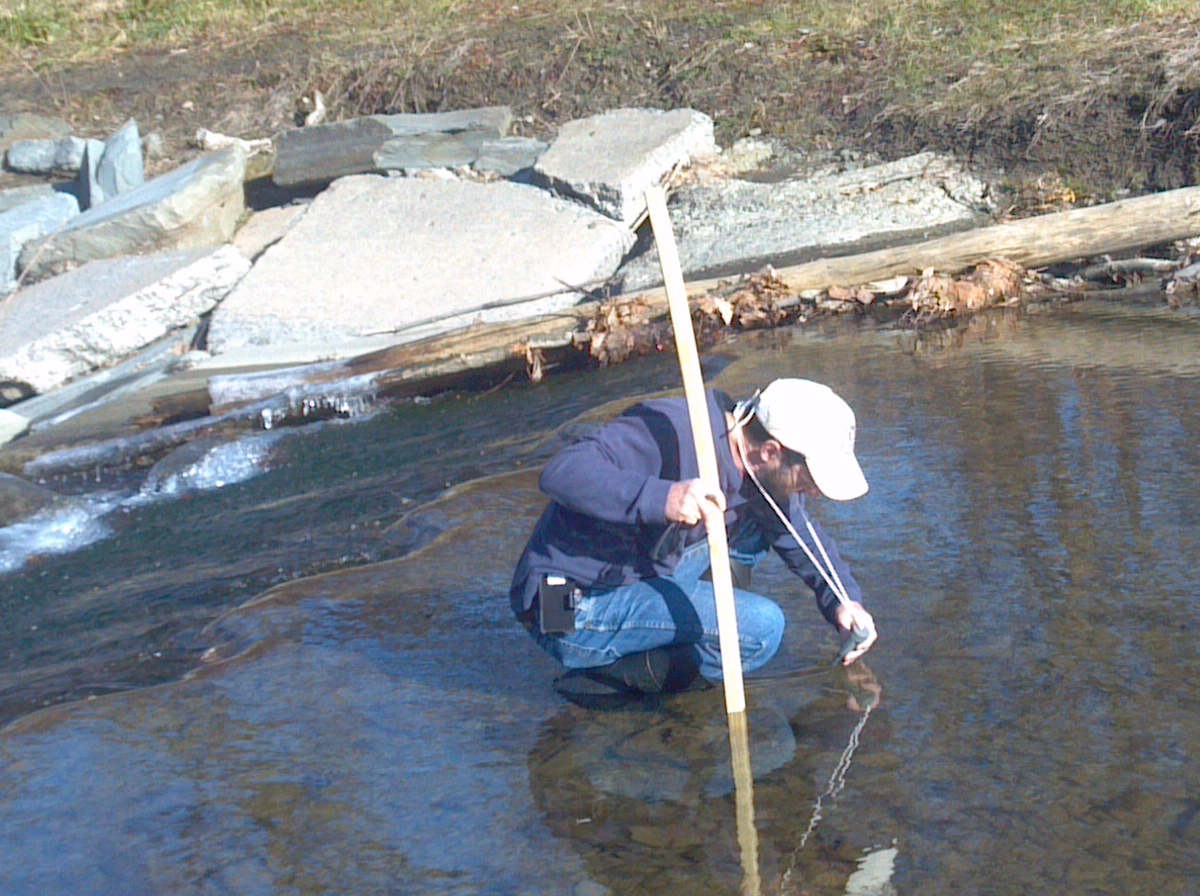Susquehanna
Fracking issues drive programming in the Marcellus target zone
The Susquehanna Group has ramped up outreach and political activism to address the intensified threat of contamination to water, air, land and consequent increased risk to health should hydrofracking be given the green light. This has been the driving force behind choice of speakers, programs and activities. One of our monthly meetings featured a talk about “Home Rule, the Rights of Municipalities and Hydrofracking in New York” presented by Vice Chair Erin Riddle; it provided background for Binghamton Mayor Matt Ryan’s topic, “Protecting Our Water and Health Through a Two-Year Moratorium.”
Group members spoke in support of the two-year moratorium at a City Council meeting and at a later press conference. Members have continued to work with other groups to pass similar bans in other towns throughout Broome County.
During the pre-election months we developed and sent a questionnaire to county and in-district state candidates, under the lead from Political Committee Chair Ben Farrer. The questions reflected Chapter issues dealing with fracking and frack waste byproducts, as well as other local issues, including greenways and public transportation. How the candidates responded was the basis for our endorsement. We sent postcards to all Broome County members informing them of our endorsements.
In the months prior to election day, we poured our collective efforts into phone banking, leafleting and door-to-door campaigning. Much of our efforts were directed by Lawson Legate, who coordinated an outreach to all members in Broome County, resulting in more than 60 members participating in the Dan Lamb for Congress campaign. The pre-election meeting in October was open to the public and featured guest speaker Tarik Abdelazim, a candidate for Broome County executive, speaking about “Environment & Public Health: issues that affect Broome County.” Originally, we anticipated a debate; however, the incumbent declined.
Scott Lauffer, one of the may water sentinels at work in Broome County, takes measurements of conductivity and total dissolved solids in Pierce Creek, Binghamton. The stick measures depth. |
The water monitoring program lives! The Susquehanna Group, along with the Finger Lakes Group, is participating in the NY Water Sentinels program. The intent is to determine if any hydrofracking chemicals may be showing up in local streams, by establishing what the baseline data is under normal (pre-hydrofracking) conditions. There is greater risk to the waterways that originate where hydrofracking is occurring in Pennsylvania, particularly via the Susquehanna River where it loops into Pennsylvania from NYS and winds back up into New York before continuing its course. To date, there are 20 volunteer monitors sampling in Broome and Tioga counties. About 16 more are working in Chenango, western Delaware and Otsego counties. It’s serendipitous that our proactive monitoring is where the state could start fracking first.
In September at the Chapter ExCom meeting in Vestal, Scott Lauffer and Erin Riddle gave a presentation on the water monitoring program. GIS mapping gave a striking visual representation of the location, extent and dense concentration of sites leased for fracking locally.
A NY Water Sentinels summit was being planned for January at Binghamton University, where water monitors from all areas of the Southern Tier will share experiences and learn about research projects on water quality and fracking underway at Binghamton University and Rochester Polytechnic Institute.
by Fiske Hanson
New York City
TPP trade agreement would undermine U.S. environmental laws
The Transpacific Partnership (TPP) free-trade agreement was negotiated in secret by the United States and 10 other countries of the Pacific Rim. In October, Group member Stephanie Low organized a panel to inform the public of the negative impact it will have upon American environmental laws.
One panel member, Ilana Solomon, trade representative of the national Sierra Club, explained how TPP would allow a foreign corporation to sue the U.S. government in a private tribunal for any profits it is denied because of interference from U.S. environmental protection laws.
Carl Arnold, a NYC ExCom member, has been working tirelessly to prevent hydrofracking. He has lectured, served on panels, and written op-eds. Other members picketed Governor Cuomo’s Manhattan office along with members of Food and Water Watch to oppose hydrofracking. They also picketed State Senator Marty Golden’s office to persuade him to oppose hydrofracking.
Ken Baer is planning a program on managing storm surges in New York City and the surrounding areas. Additionally, our Group has reaffirmed its position opposing the construction of any new residential buildings in flood evacuation areas.
The NYC Group completed the national leadership training and will be planning a fundraising event as a final project prosposed by the trainers. Let us know if you would like to attend or help with such an event!
To follow-up on these stories and more, sign up with our activist list:
http://lists.sierraclub.org/SCRIPTS/WA.EXE?SUBED1=Atl-NYC-NEWS&A=1 or you may e-mail Ken Baer (hungryhiker@aol.com) and request to be added to the listserv.
by Thelma Fellows
Niagara
Members keep regional FIT at top of to-do list
The Niagara Group and United Steelworkers continue to push for a regional feed-in-tariff (FIT) to ramp up renewable energy and generate good jobs in the region (see here). Members of the Energy Committee have met with local elected officials, agencies, and the Regional Economic Development Council. We have also held public meetings with partners, such as the League of Women Voters, to communicate the potential of a FIT for our regional energy security and economic viability. This continues to be the number one priority of the Group.
The fight continues against the delays in cleaning up the West Valley nuclear storage site, managed by DOE and NYSERDA (see here). Recent reports on the possible effects of climate change and the possibility of a severe rainstorm such as happened in 2009 in a neighboring community (dropping six inches of rain in one hour) raise the specter of contamination by strontium into neighboring creeks that flow into Lake Erie and Lake Ontario. The current contracted work does not include a cleanup of the radioactive plume that continues to move through the erodible area, and there are no plans to consider the next steps for cleanup until 2020. We continue to lobby our legislators.
Our Education Committee is holding its second annual competition designed to highlight environmental education in the classroom in May of 2013. This contest gives high school teachers an opportunity to showcase the important work that is already going on in their classrooms or to try something new. The goal is to encourage students to learn about our natural environment and how to protect it.

